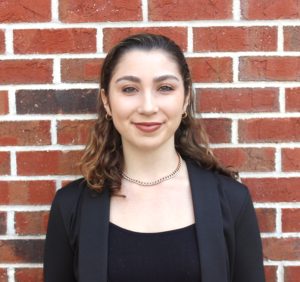By Katrina Erwin, The CLEO Institute
With all of the doom and gloom in the news about the climate emergency, there is a silver lining. We have progressed so much through scientific research that solutions are ready to be implemented.
Clean renewable energy is more reliable than ever, battery storage capacity has increased, and we are even developing ways to capture and store carbon.
So, yes! Solutions to the climate crisis exist. However, climate-denying elected officials and the corporations that fund them still stand in our way.
In November, countries from all over the world met at the 26th annual conference of parties (COP26) in Glasgow, Scotland to discuss the progress toward the goals agreed upon in the Paris agreement that must be achieved to save our planet.

Thankfully, climate justice — “the fair treatment of all people and the freedom from discrimination in the creation of policies and projects that address climate change as well as the systems that create climate change and perpetuate discrimination” — has become a core part of the movement. But talking about climate justice is not the same as acting on it.
This year’s COP26, which had the potential to be the most inclusive and ambitious COP to date, ended up being perhaps the most disappointing one yet.
Many of my colleagues in the climate advocacy space had the opportunity to attend the Glasgow conference and experienced firsthand the exclusivity and elite attitudes of too many COP26 attendees.
Frontline community members from all over the world traveled to attend and were completely left out of the entire decision-making process. The main decision-makers were privileged world leaders who will never be significantly harmed by the climate emergency.
Instead of giving the most vulnerable individuals a seat at the, fossil fuel companies, who had the largest delegation at COP26 , were present and able to protect their carbon polluting future.
UN Secretary-General António Guterres summarized the essence of the latest IPCC report: “we are in a code red for humanity.” Sadly, some countries are refusing to act. The consensus from members of the climate movement are that current pledges are not enough and we are still on track to see warming above 2 degrees Celsius over pre-industrial levels. When the final COP26 agreement was presented, the COP26 President said he was sorry about the results.
In my opinion, the majority of countries present supported promises that should have been made years ago. We have a long way to go.
When decisions are being made without diverse community input, the resulting policies tend to serve the wealthy and world economic leaders. COP26 failed because it did not prioritize the voices of those most vulnerable to the threats posed by the warming climate.
The largest polluters refused to make sufficient greenhouse-gas commitments, and the overwhelming privileged leadership failed to recognize the severity of the crisis.
Although COP26 was, in the opinion of many, a failure, there is still a chance to make a difference at home. The U.S. is the second biggest emitter of greenhouse gases. While U.S. officials tried to make ambitious promises at COP26, they will not be obtained if we fail to pass the Build Back Better Act.
As U.S. citizens, we should demand that our representatives write policies to meet climate goals. I urge you to speak to your elected officials about your disappointment and encourage them to pass meaningful climate legislation.
If you want to support ambitious U.S. climate goals, please sign and share The CLEO Institute’s Build Back Better Action Alert, which will put you in contact with your congressional representatives.
Change happens at the community level and works its way up. We can be the change right now. The only way to protect our now and our future is to get more involved in policy and keep up to date with what our policymakers are doing.
Most important, we must hold world leaders accountable for the promises made. We must continue to fight for the future of vulnerable communities around the world that are facing the brunt of the climate emergency.
Katrina Erwin is an associate program manager with The CLEO Institute in Miami. She helps run CLEO’s youth advocacy program “GenCLEO” at the state, local, and federal level and believes the youth movement is the key to solving the climate crisis.
“The Invading Sea” is the opinion arm of the Florida Climate Reporting Network, a collaborative of news organizations across the state focusing on the threats posed by the warming climate.



